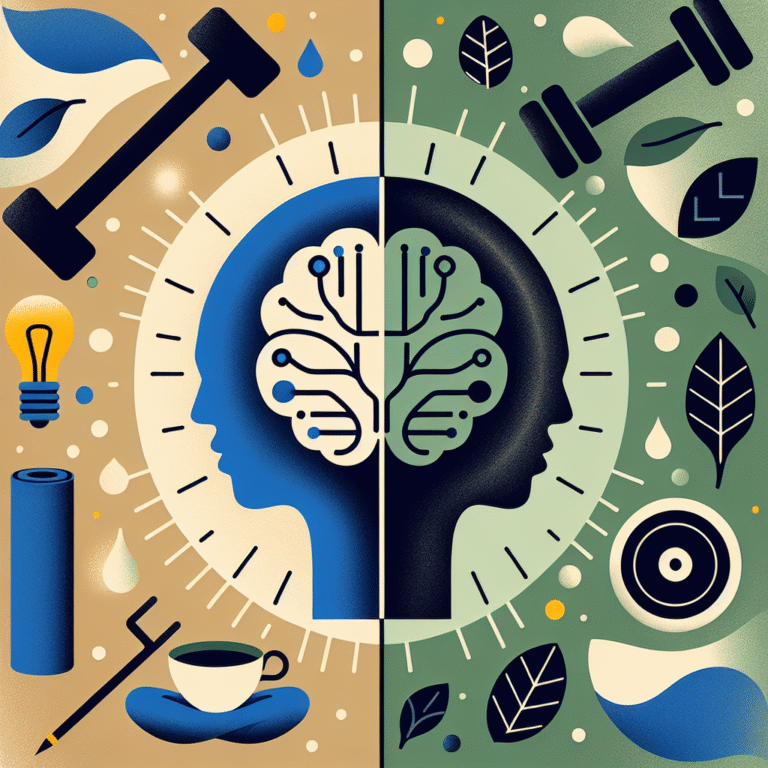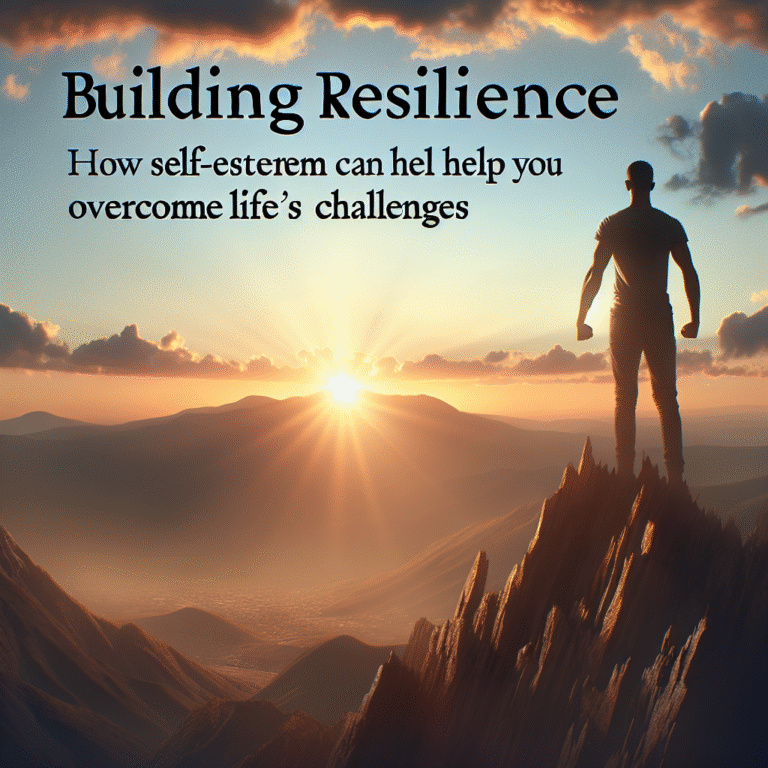
In today’s fast-paced world, resilience isn’t just a desirable trait; it’s essential for thriving. As we navigate through life’s ups and downs, emotional intelligence (EI) emerges as a formidable ally in the quest for resilience. Understanding how to build resilience through emotional intelligence can significantly enhance well-being, relationships, and overall life satisfaction. This article will delve into the interplay between resilience and emotional intelligence, providing insights and strategies to help you harness their combined power.
Table of Contents
- Understanding Resilience
- What is Resilience?
- Why Resilience Matters
- Decoding Emotional Intelligence
- What is Emotional Intelligence?
- The Five Components of EI
- The Connection Between Resilience and Emotional Intelligence
- Case Studies: Real-World Applications
- Case Study 1: A Corporate Example
- Case Study 2: Resilience in Education
- Strategies to Build Resilience Through Emotional Intelligence
- Self-Awareness
- Self-Regulation
- Motivation
- Empathy
- Social Skills
- The Role of Mindfulness in Building Resilience
- Practical Exercises to Enhance EI and Resilience
- Conclusion: Your Path Forward
- FAQs
1. Understanding Resilience
What is Resilience?
Resilience is the capacity to recover quickly from difficulties. It involves mental agility, strength, and adaptability, allowing individuals to withstand adversity, stress, and uncertainty.
Why Resilience Matters
Resilience plays a crucial role in our personal and professional lives. It not only helps us cope with challenges but also fosters a growth mindset that enables us to learn from failures and setbacks. As you cultivate resilience, you enhance your ability to thrive in various aspects of life, from relationships to career development.
2. Decoding Emotional Intelligence
What is Emotional Intelligence?
Emotional intelligence is the ability to recognize, understand, and manage our own emotions while also being attuned to the emotions of others. This capacity allows individuals to navigate social complexities and make informed decisions that enhance personal and professional relationships.
The Five Components of EI
- Self-Awareness: Recognizing one’s own emotions and their impact.
- Self-Regulation: Managing one’s emotions in healthy ways.
- Motivation: Using emotional factors to pursue goals.
- Empathy: Understanding the emotions of others.
- Social Skills: Building and managing relationships.
3. The Connection Between Resilience and Emotional Intelligence
Emotional intelligence underpins resilience by providing the necessary tools to manage emotions during stressful situations. By enhancing our emotional awareness and regulation, we cultivate the resilience needed to navigate adversity. Emotional intelligence is thus a precursor to developing the resilience that allows us to thrive, even in challenging circumstances.
4. Case Studies: Real-World Applications
Case Study 1: A Corporate Example
Company A, a leading tech firm, implemented EI training to improve employee resilience following a company-wide restructuring. By focusing on self-regulation and empathy, employees reported reduced stress and improved collaboration. The result? A significant boost in overall productivity and job satisfaction.
Analysis: This example illustrates how fostering emotional intelligence can serve as a foundation for building resilience in professional settings, leading to a positive organizational culture.
Case Study 2: Resilience in Education
School B introduced an emotional intelligence curriculum aimed at helping students cope with academic pressures. Students learned to express their feelings, understand others’ emotions, and develop problem-solving skills. The outcome was a marked increase in student resilience, contributing to improved academic performance and lower dropout rates.
Analysis: This case highlights how emotional intelligence and resilience play a pivotal role in educational environments, equipping students with vital life skills.
5. Strategies to Build Resilience Through Emotional Intelligence
Self-Awareness
Start by regularly reflecting on your emotional responses. Consider journaling your feelings or discussing them with a trusted friend. This practice can pave the way for deeper self-understanding and awareness.
Self-Regulation
Develop coping strategies to manage your reactions. Techniques may include deep breathing, meditation, or stepping away from stressful situations to gain perspective.
Motivation
Set personal goals that inspire you. Use positive affirmations and visualizations to remind yourself of achievements and progress, fostering intrinsic motivation.
Empathy
Practice active listening. Engage with others about their feelings and perspectives without judgment. This not only strengthens relationships but also enhances your understanding of emotional dynamics.
Social Skills
Join groups, engage in community activities, or network to strengthen your social connections. Building a supportive community can enhance emotional resilience.
6. The Role of Mindfulness in Building Resilience
Mindfulness meditation promotes awareness and acceptance of the present moment, fostering resilience. By calming the mind and reducing anxiety, mindfulness can enhance emotional regulation and self-awareness, all critical components of emotional intelligence.
7. Practical Exercises to Enhance EI and Resilience
- Daily Journaling: Reflect on emotional experiences and responses.
- Role-Playing: Engage in role-playing activities to practice empathy and social skills.
- Mindfulness Practices: Dedicate time each day for mindfulness and meditation exercises.
8. Conclusion: Your Path Forward
Building resilience through emotional intelligence is not merely an aspiration; it’s a practical endeavor within everyone’s reach. By recognizing the interconnections between emotions and resilience, you can cultivate a more fulfilling life. Remember, the journey to resilience is ongoing, enriched by your commitment to developing emotional intelligence.
Inspirational Takeaway
Continue to prioritize your emotional growth. Embrace the challenges with an open heart and mind, and you will not only build resilience but also thrive in every aspect of your life.
9. FAQs
Q1: How does emotional intelligence help with stress management?
Emotional intelligence enhances self-awareness and regulation, allowing individuals to identify stressors and implement coping strategies effectively.
Q2: Can emotional intelligence be learned?
Yes, emotional intelligence can be developed through practice and training, focusing on the various components such as self-awareness and social skills.
Q3: What are some books that focus on emotional intelligence?
Books like Daniel Goleman’s "Emotional Intelligence" and Travis Bradberry’s "Emotional Intelligence 2.0" are excellent resources.
Q4: How can I practice empathy daily?
Engage in conversations where you actively listen and consider others’ feelings and perspectives without interruption.
Q5: What are the long-term benefits of building resilience?
Building resilience leads to lower stress levels, improved mental health, better performance in personal and professional environments, and enhances overall life satisfaction.
By understanding Building Resilience: How Emotional Intelligence Can Help You Thrive, you’re equipped to not only face life’s challenges but also to thrive amidst them. Embrace the journey, focus on growth, and continually seek greater emotional understanding. The rewards are immeasurable and far-reaching.
















